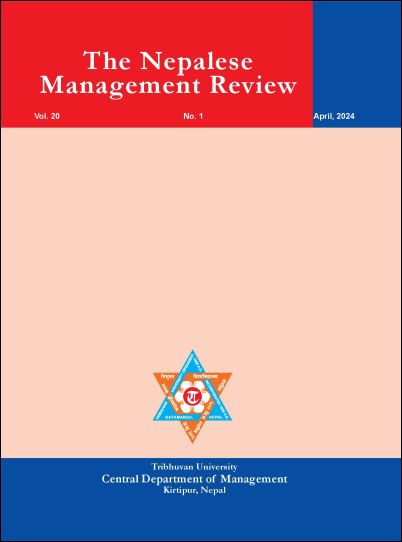Human Resource Development and Employee Commitment in Nepalese Commercial Banks
DOI:
https://doi.org/10.3126/tnmr.v20i1.64738Keywords:
Compensation, Job Security, Reward, TrainingAbstract
The level of employee commitment is a significant issue for many firms throughout the world. As a result, many firms are using a variety of human resource development techniques to increase employee commitment. Employee dissatisfaction has been voiced in the field of compensation, which is characterized by unequal rewards, inadequate compensation and lack of job security. The purpose of this research is to focus on analyzing the relationship between HRD dimensions and employees' commitment working across various commercial banks in Nepal. The study's independent variables were Training, Compensation, Job Security, and Reward. The dependent variable was employee commitment. The descriptive research design was used. The population of the study was 46408 employees and a simple random sample technique was used to choose 396 employees from 11 commercial banks under probability sampling method. Data were collected using a standardized questionnaire on Likert Scale with 1 specifying a strongly disagreement and 5 a strongly agreement. Descriptive statistics, correlation, and regression analysis were used to analyze the data. Cronbach's Alpha had been used to test for reliability. Reliability is acceptable with a Chronbach's Alpha rating of 0.76 on an average. IBM, SPSS version 26 was used to analyze the data. The study concluded that employees' Training, Compensation and Job Security had a favorable and significant relationship with employee commitment, Reward had a negative but significant impact on Employee Commitment. The study recommended that the policy makers and BOD of Nepalese Commercial banks should design an effective welfare policy to enhance commitment of employees.




